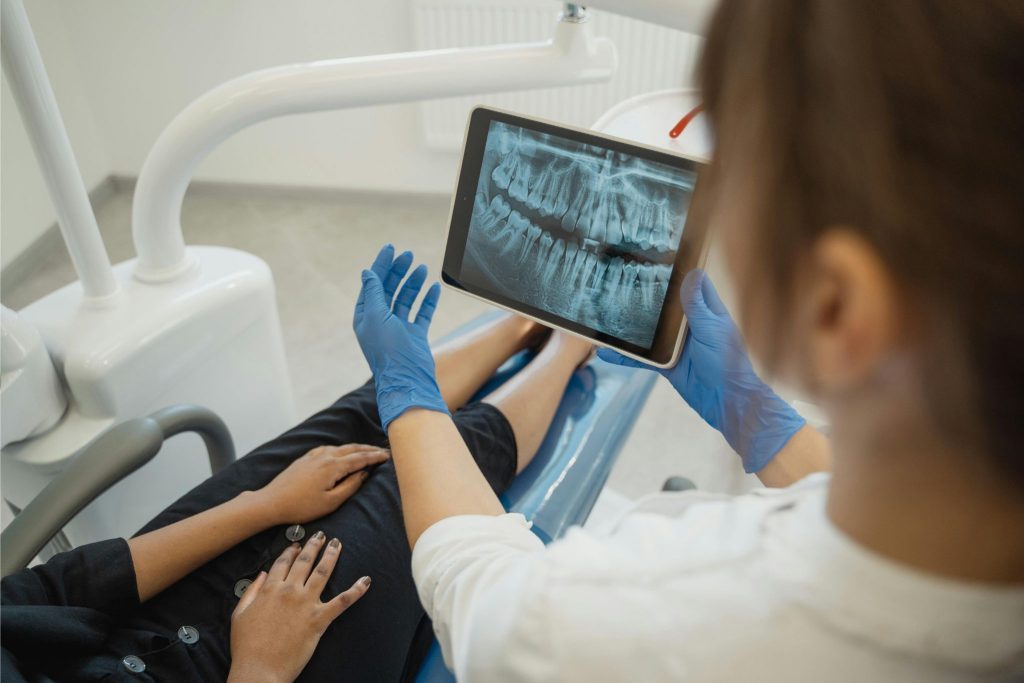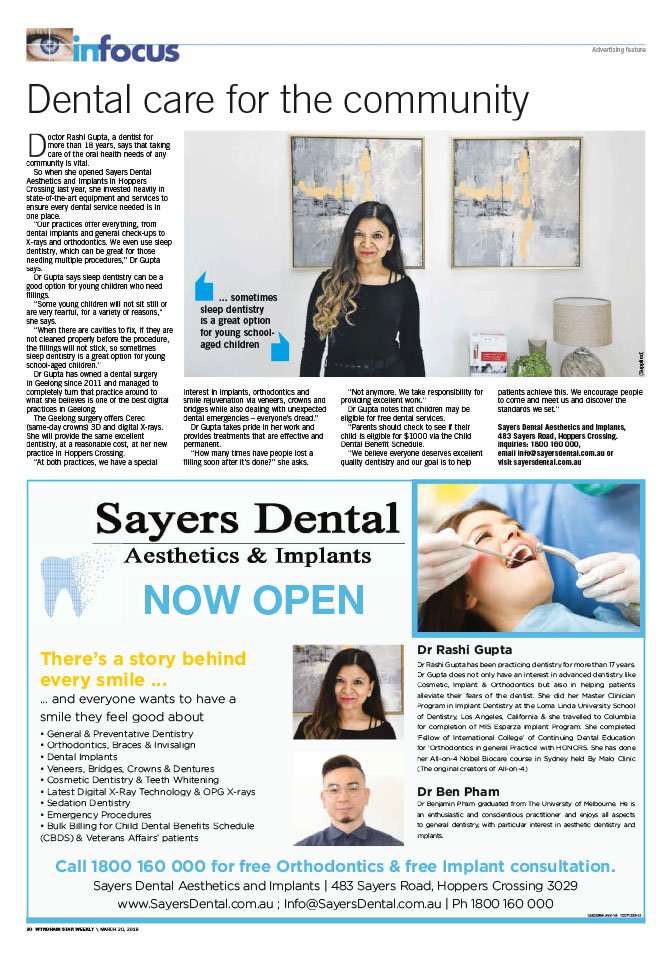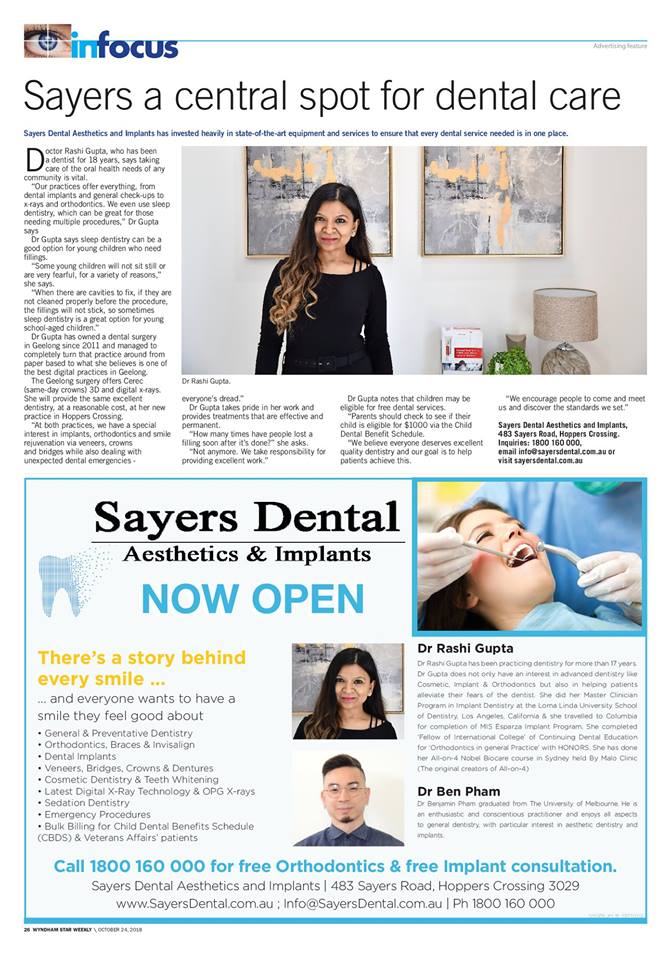At Sayers Dental Aesthetics and Implants, we understand that dental emergencies can happen at any time, often causing significant pain and distress. That’s why we prioritize emergency treatment, leveraging our extensive experience and skill to manage these situations effectively. Whether you’re dealing with a broken tooth, severe dental pain, or a knocked-out tooth, it’s crucial to act quickly and know the appropriate steps to take.
Recognizing a Dental Emergency
Not all dental issues require immediate attention, but certain situations do. Here are some indicators that you may need urgent dental care:
- Loose or knocked-out permanent tooth
- Non-stop bleeding
- Jaw injury
- Swelling with pain
- Toothache
Immediate Steps for Common Dental Emergencies
1. Broken Tooth
A broken tooth can cause severe discomfort and affect your ability to eat or speak. Here’s what to do:
- Rinse your mouth with lukewarm water to clean the area.
- Take over-the-counter pain medication to manage discomfort.
- Apply a cold compress on the outside of your mouth to reduce swelling, avoiding direct contact with the tooth.
2. Knocked-out Tooth
If a permanent tooth is knocked out, it’s vital to act quickly:
- Gently and slowly replace the tooth in its socket if possible.
- Bite down on clean gauze or cloth to keep the tooth in place.
- If the tooth cannot be reinserted, hold it by the crown (not the root), rinse it with clean water, and keep it moist in a container of milk, saliva, or water.
3. Severe Dental Pain
Severe pain can be a sign of a serious issue:
- Avoid using the affected tooth for chewing.
- Take over-the-counter pain medication to alleviate the pain.
- Rinse with lukewarm saltwater to reduce inflammation and clean the area.
4. Lost Restoration or Filling
Losing a filling or crown can expose the tooth to damage and pain:
- Do not attempt to repair the restoration yourself.
- Avoid using the damaged tooth while eating.
- Keep your mouth clean from debris.
- Apply a cold compress near the affected tooth and take over-the-counter pain relievers.
5. Injured Soft Tissue
Soft tissue injuries in the mouth can be managed with careful attention:
- Gently rinse your mouth with saltwater.
- Apply pressure to the area with moist gauze or a tea bag to control bleeding.
- Use a cold compress on your cheek to reduce swelling and manage bleeding.
6. Facial Swelling
Facial swelling can indicate an infection or other serious condition:
- Stay upright and avoid lying flat, even while sleeping.
- Drink plenty of fluids to prevent dehydration, which can exacerbate complications.
7. Oral Bleeding
Bleeding can occur due to gum disease, injury, or after a dental procedure:
- If bleeding occurs while brushing or flossing, it may be due to gum disease. In this case, see your dentist for immediate attention.
- For bleeding caused by an injury or after a procedure, keep your head elevated, especially when sleeping, to reduce blood flow to the affected area.
Preparing a Dental First Aid Kit
Having a dental first aid kit can be incredibly helpful in managing emergencies:
- Cotton balls to protect oral tissues from damaged braces or dentures.
- Tea bags to control bleeding and ease discomfort from bites or injuries.
- Orthodontic wax to cover sharp parts of wires or orthodontic bands.
- Toothache drops for temporary pain relief.
- Topical anesthetic for relief from gum irritation, denture sores, and cuts.
- Clean gauze or cloth to use as a compress in case of bleeding.
Dental Emergency Care in Hoppers Crossing
If you’re facing a dental emergency, don’t hesitate to reach out to us. We offer same-day dental emergency appointments to ensure you receive the care you need promptly. Call us immediately at (03) 9749 1178 or visit us at Hoppers Crossing Montessori Centre.
Book Your Orthodontics Appointment
Orthodontic care is essential for maintaining a healthy and beautiful smile. Whether you need braces, aligners, or other orthodontic treatments, our skilled team at Sayers Dental Aesthetics and Implants is here to help. Contact us today to schedule your appointment and take the first step towards a better smile.
For more information on dental care and emergencies, check out these useful Australian references:
Remember, prompt attention to dental emergencies can prevent more serious complications and help you maintain optimal oral health.



